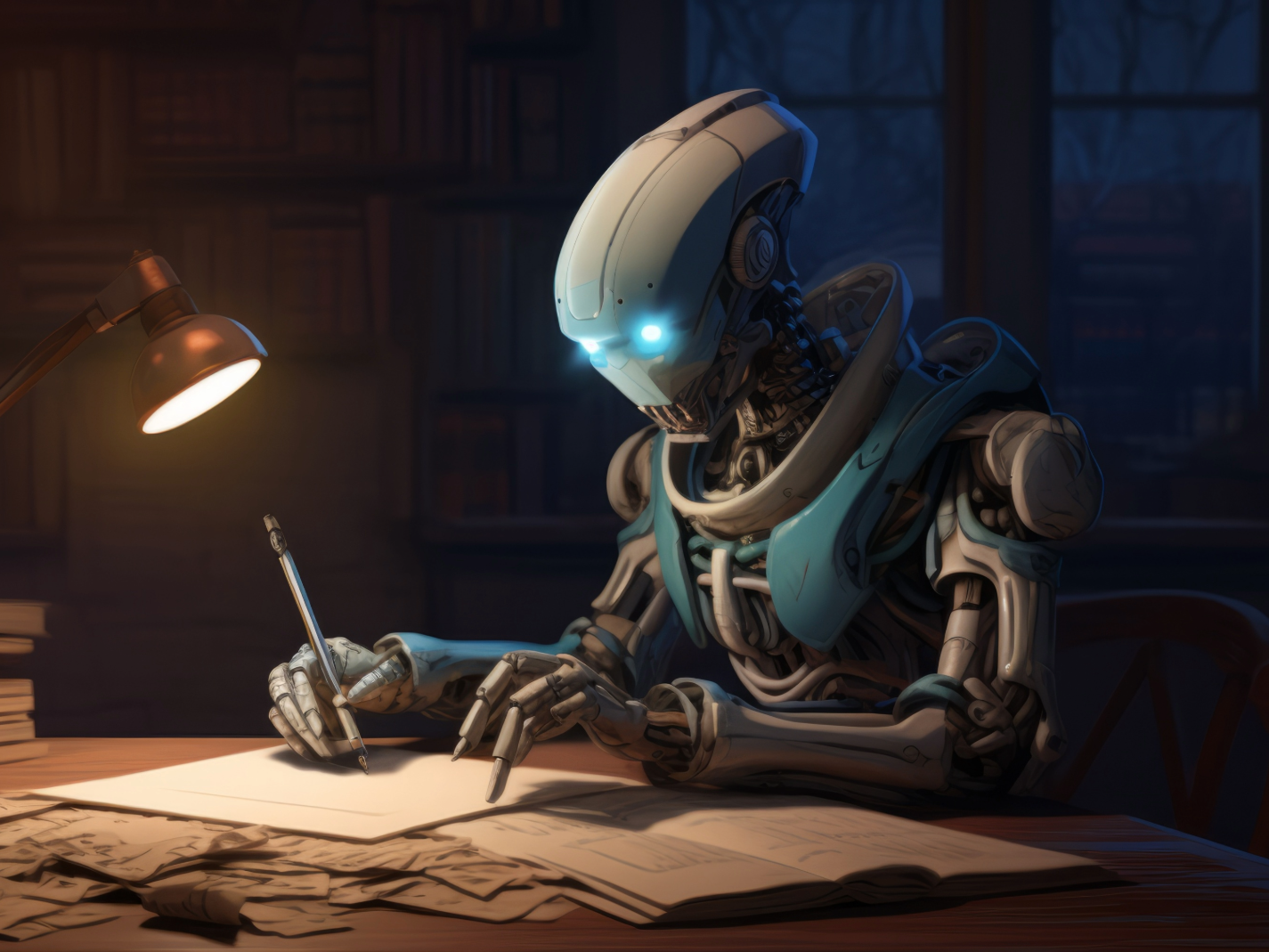
Postmodern philosophers once hailed “the death of the author,” which was part of their strategy to decenter meaning in texts and free culture from the tyranny of metanarratives. Meaning cannot be found in a text without discerning the author’s intentions. All such controls and stipulations should be rejected as authoritarian. Objective meaning must give way to subjective and constructivist accounts of texts. “Truth” is only a power ploy.
I wrote against this highbrow sophistry in Truth Decay, published in 2000, but suffice it to say that postmodern authors accepted royalty checks and got upset when their critics misinterpreted their texts. While these errant postmodern ideas are still with us, there is another mortal threat to the author—this time from the internet. Authors can cheat through plagiarism with artificial intelligence (AI), which results in an internet-enabled literary suicide of the author.
Plagiarism and Artificial Intelligence
The internet makes plagiarism easier since so much is available and easy to steal. Many colleges and seminaries use plagiarism detection programs—such as Turnitin—and some make their use mandatory. But why is plagiarism wrong?
Plagiarists commit the sins of lying, stealing, and coveting. She pretends to author a text she has not authored, which breaks the commandment not to give false witness (Exodus 20:16). She also sins by stealing from another’s writing (Exodus 20:15) and by breaking the commandment not to covet (Exodus 20:17). This is an impression showing of three sins in one act.
Now consider AI deception in writing. The offender lies by claiming to write something she did not write. She does so because she is covetous. However, she would not have stolen if the AI had been lawfully procured. With AI imposture, you break only two of the Ten Commandments. Still, the offender is in bad shape since the brother of Jesus wrote, “For whoever keeps the whole law and yet stumbles at just one point is guilty of breaking all of it” (James 2:10).
The Authentic Author
Beyond basic ethics, the meaning of authorship is brought into question. What is a genuine author? An author is one who uses his or her skills and knowledge to communicate in words. This is part of human agency, which involves thoughts and intentions that lead to actions. This is at the center of who we are as made in God’s image and likeness (Genesis 1:26-27).
Our authorship of texts should stem from our genuine selves—from our knowledge and our skills. Authorship should flow from hard and protracted work to master material—through much reading and study, long hours at the writing desk, failures in writing, successes in writing, the influence of good editors, and the influence of bad editors.
Years ago, in the mindless euphoria of the young internet, I read that literacy meant having skills to access knowledge. Thus, access to the internet makes everyone literate! That is totally wrong. Skill in finding online material—whether you commit plagiarism or not—is entirely different from literacy, which consists of your knowledge, while unplugged, the knowledge you possess in yourself. Let me illustrate.
A friend was once falsely arrested and had to spend the night in jail. I bailed him out the next day. He told me that he spent a sleepless night reviewing the books of the Bible in his mind. That is literacy. It is the knowledge you bring from within yourself to bear on your environment and in your writing. An author writes from his or her literacy knowledge and through skills. It concerns self-ownership and self-stewardship.
But plagiarism and using AI for writing outsources intelligence and knowledge to a third party. You forfeit part of your identity as a human being and concede your rational agency to an impersonal program that mimics—and mocks—humanity. The AI imposters are not men or women of their word, but engineers of alien words, emanating from the internet and captured to do the fraud’s bidding.
If you affix your name to a written work, you claim authorship—intellectual and moral ownership. It is a claim about your identity and your integrity. When you plagiarize or use AI dishonestly, you attribute knowledge and skills to yourself that you do not possess. You become a literary fraud, a faker, a pretender. You pay yourself undeserved compliments you do not deserve since they are lies. God knows, even if no one else does. You deny yourself true authorship for the sake of faux authorship, which is literary suicide—even if you survive and even thrive.
All suicide is wrong, given our God-given value and potential. Thus, let us avoid literary suicide by keeping our integrity as authentic authors and not by becoming mere manipulators of information through plagiarism or deceptive AI scheming.
Image by Twinny B Studio — Adobe Stock — Asset ID#: 658777601
Thank you Doug.
You are welcome, my friend!